Advance CTE serves as a steering member of the College in the High School Alliance,a coalition of national, state, and local organizations collaborating to enable high school students to enroll in authentic, affordable college pathways toward postsecondary degrees and credentials offered with appropriate support. This blog, the second in a series, highlights the CHSA’s Unlocking Potential guide that elevates findings and work states are doing to design and deliver high-quality college in the high school programs.
Resource Overview
College in High School Alliance (CHSA)’s Unlocking Potential: A State Policy Roadmap for Equity & Quality in College in High School Programs provides a comprehensive set of policy recommendations for states looking to expand equitable access to college and high school programs. This guide provides policy recommendations as well as actionable items for state and local administrators and concludes with other examples of state tools and resources.
Background:
College in High School Alliance defines college in high school programs as dual enrollment, concurrent enrollment, and early college high school. These programs are formed via partnerships between school districts and accredited institutions of higher education to provide high school-age students postsecondary experiences that lead to college credentials or degrees.
The number of students participating in College in High School Programs has increased to provide opportunities to more than 5.5 million secondary learners, with Career Technical Education (CTE) courses making up one-third of enrollments (1). While these programs have proven popular and in high demand, enrollment demographics do not reflect the full diversity of the learner population. Significant opportunity exists for reducing barriers to accessing College in High School Programs for all learners, especially those in low-income communities, learners of color, learners from rural communities and first-generation college-goers.
Unlocking Potential provides recommendations and highlights work for state policies that advance the goals of equity and quality for college in high school programs in six categories:

The numbers in the image represent page numbers from the resource guide, per each category.
- Equity Goal and Public Reporting:
- Set an equitable and statewide public goal for increasing the participation and success of traditionally underserved learners in the early postsecondary groups
- Disaggregate public reporting and accountability for progress toward the goal
- Practices in Louisiana, Montana, Minnesota, and Washington are highlighted
- Program Integrity and Credit Transfer:
- Support and promote high-quality early postsecondary opportunities
- Create cross-sector partnerships between secondary and postsecondary teams
- Create articulation agreements to remove barriers on student transfer opportunities
- Practices in California, Colorado, Florida, Louisiana, Minnesota and Texas are highlighted
- Finance:
- Design funding mechanisms that remove financial barriers for low-income and moderate-income students who want to participate in early postsecondary opportunities
- Practices in Arkansas, Georgia, Nebraska, Utah, Vermont and Washington are highlighted
- Course Access and Availability:
- Remove course access and availability barriers for all learners
- Maximize learners’ college credit attainment experiences through international pathway opportunities and by providing academic and career exploration opportunities
- Practices in Colorado, Florida, Georgia, Kentucky, Maine and Virginia are highlighted
- Instructor Capacity
- Develop strategies to recruit, provide support, and diversify the pool of instructors with the appropriate qualifications to teach college in high school programs
- Create high-quality partnerships between K-12 and postsecondary partners as college in high school programs
- Scale college in the high school programs and create sustainability
- Practices in Hawaii, Kansas, Minnesota and Ohio are highlighted
- Navigator Support:
- Prioritize student navigational support.
- Enhance the current advising mechanisms.
- Practices in California, Colorado, Montana, Ohio and Tennessee are highlighted
The policy recommendations are presented along a continuum: foundational, advanced, and exceptional policies. Foundational policies are those that every state must have to best support its learners.
For example, under the Equity Goal and Public Reporting, Every Student Succeeds Act (ESSA) data reporting requirements would be considered a foundational policy. On the other end of the spectrum, states can enhance these same data reporting requirements by creating tool kits and providing technical assistance to empower local use of data to remove barriers for learners and create more equitable programs.
To learn more about how CTE early postsecondary opportunities (EPSO) such as dual enrollment serve learners, check out Advance CTE’s report on The State of CTE: Early Postsecondary Opportunities. This 50-state report, provided in partnership with College in the High School Alliance reveals key findings on how EPSOs serve CTE learners and provides recommendations for state leaders to leverage state infrastructure and collaboration to advance equity in these experiences.
Suela Cela, Senior Policy Associate


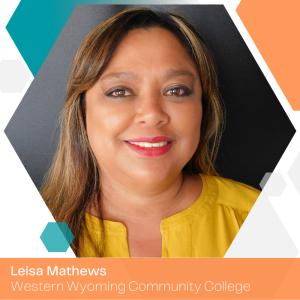 Tell us about your journey to the Fellowship.
Tell us about your journey to the Fellowship. Pennsylvania
Pennsylvania Texas
Texas Ohio
Ohio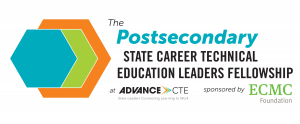
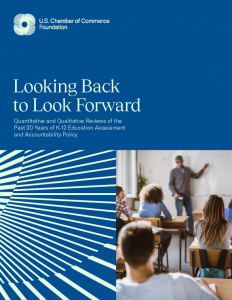 Earlier this year, the U.S. Chamber of Commerce Foundation hosted a webinar to release their new report,
Earlier this year, the U.S. Chamber of Commerce Foundation hosted a webinar to release their new report, 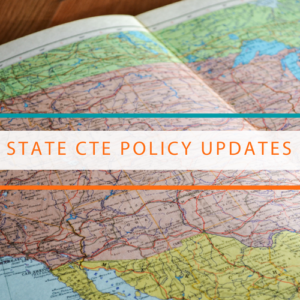 Advance CTE is committed to supporting states as they build cohesive, flexible and responsive Career Technical Education (CTE) ecosystems. With that responsiveness, comes a responsibility to provide quality CTE programs and interventions for learners that exist on the margin of society. One important group of learners that exists on the margin is students experiencing homelessness.
Advance CTE is committed to supporting states as they build cohesive, flexible and responsive Career Technical Education (CTE) ecosystems. With that responsiveness, comes a responsibility to provide quality CTE programs and interventions for learners that exist on the margin of society. One important group of learners that exists on the margin is students experiencing homelessness. 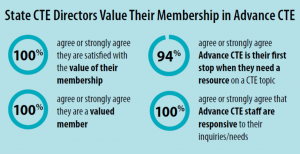
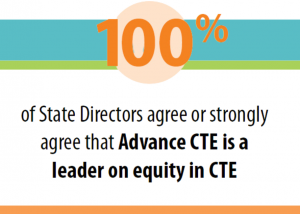 Advance CTE is a national leader in equipping CTE leaders to build more equitable programs and systems for each learner.
Advance CTE is a national leader in equipping CTE leaders to build more equitable programs and systems for each learner. 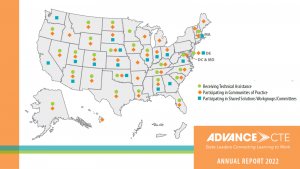
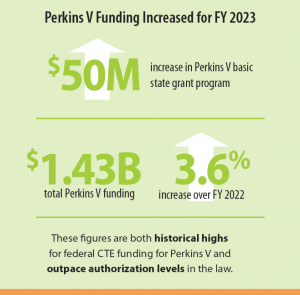 Advance CTE’s strong reputation among federal policymakers delivered increases for Strengthening Career and Technical Education for the 21st Century Act (Perkins V).
Advance CTE’s strong reputation among federal policymakers delivered increases for Strengthening Career and Technical Education for the 21st Century Act (Perkins V). 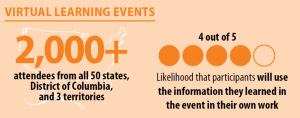 In 2022, Advance returned to in-person events while also delivering virtual events in new formats, including a three-part June Meeting Series and fireside chat featuring U.S. Department of Education Assistant Secretary Office of Career, Technical and Adult Education Dr. Amy Loyd.
In 2022, Advance returned to in-person events while also delivering virtual events in new formats, including a three-part June Meeting Series and fireside chat featuring U.S. Department of Education Assistant Secretary Office of Career, Technical and Adult Education Dr. Amy Loyd. 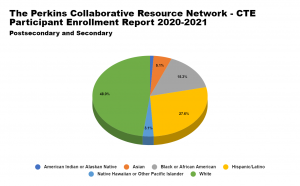
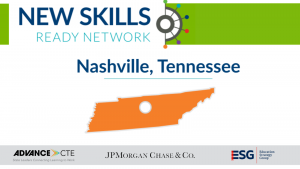 The Nashville, Tennessee site of the
The Nashville, Tennessee site of the 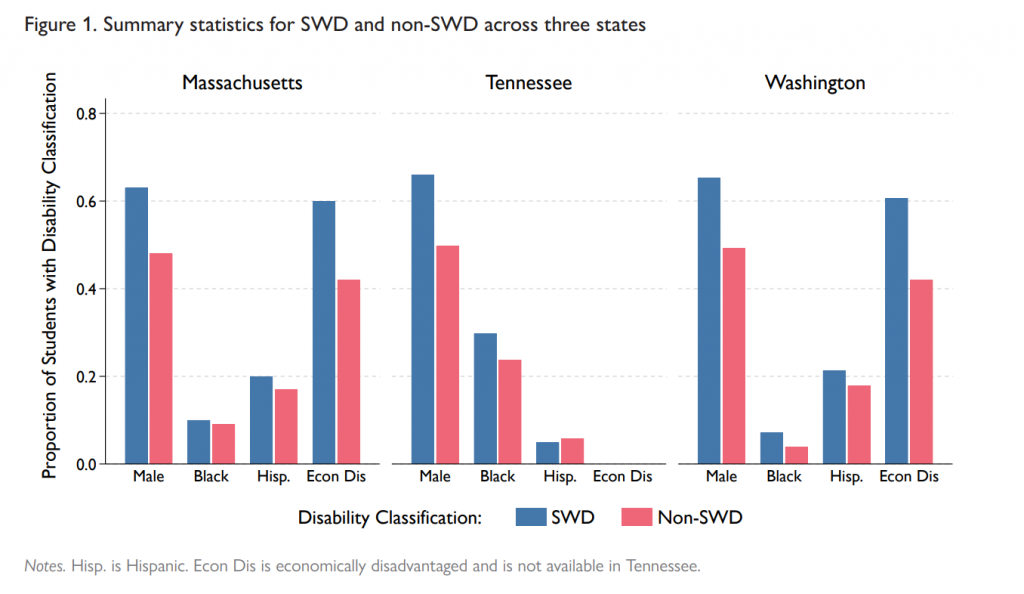
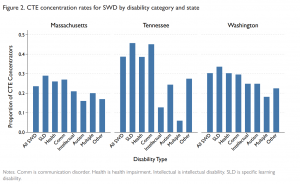
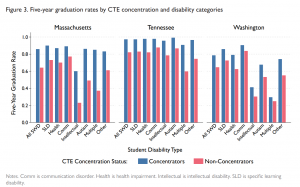
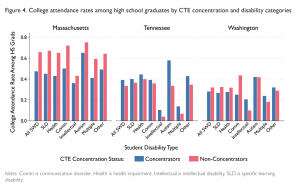
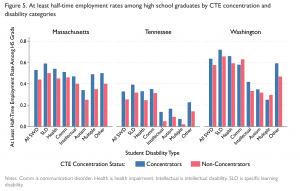
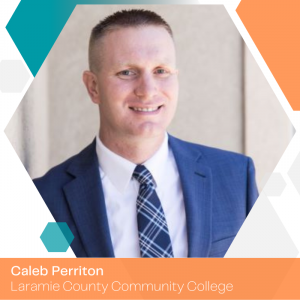 Caleb Perriton’s career began in the automotive industry as an international trainer prior to entering the world of postsecondary CTE. Currently, he serves as Program Director of the Trades & Technical Studies Pathway at Laramie County Community College. He is an ASE Certified Master Automotive Technician and earned a bachelor’s degree in automotive technology from Weber State University and master’s degree in business administration from the University of Wyoming.
Caleb Perriton’s career began in the automotive industry as an international trainer prior to entering the world of postsecondary CTE. Currently, he serves as Program Director of the Trades & Technical Studies Pathway at Laramie County Community College. He is an ASE Certified Master Automotive Technician and earned a bachelor’s degree in automotive technology from Weber State University and master’s degree in business administration from the University of Wyoming.  Dr. Luv’Tesha Robertson
Dr. Luv’Tesha Robertson  Daniel Sandoval is passionate about cultivating self-reliance among learners and students from marginalized populations and has focused on serving immigrant, economically disadvantaged, racially underrepresented and linguistically diverse communities. His range of experience includes grant writing and administration, managing apprenticeship and credential attainment initiatives, and serving in leadership roles in postsecondary student services. Currently, Sandoval serves as the Director of Customized Training and Apprenticeships at Pickens Technical College and as a Psychology instructor at the Community College of Aurora. He earned a bachelor’s degree in English writing from Colorado Mesa University and a master’s degree in counseling psychology from the University of Colorado at Denver.
Daniel Sandoval is passionate about cultivating self-reliance among learners and students from marginalized populations and has focused on serving immigrant, economically disadvantaged, racially underrepresented and linguistically diverse communities. His range of experience includes grant writing and administration, managing apprenticeship and credential attainment initiatives, and serving in leadership roles in postsecondary student services. Currently, Sandoval serves as the Director of Customized Training and Apprenticeships at Pickens Technical College and as a Psychology instructor at the Community College of Aurora. He earned a bachelor’s degree in English writing from Colorado Mesa University and a master’s degree in counseling psychology from the University of Colorado at Denver.